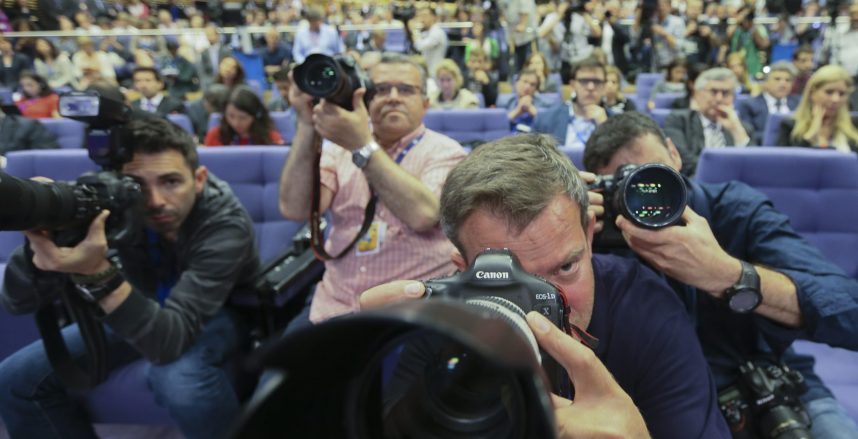
EC Rule of Law Report raises red flags about media freedom in Romania, Bulgaria, Hungary, and Greece among others.
Romania’s press is in the highest risk category regarding freedom of expression, according to the newest report on the Rule of Law in the EU released on Wednesday by the European Commission.
The Media Pluralism Monitor ranks EU member states into five risk levels: Bulgaria, Greece, Hungary, Malta, Poland, Romania and Slovenia are considered highest-risk countries.
The report is an overview of trends in the EU as a whole with 27 country chapters looking at developments in every member state since July 2021, including the context of the Russian invasion in Ukraine.
The Commission says transparency of media ownership in Romania rermains incomplete, and there is not enough transparency concerning audiovisual media and elections.
“There is not enough transparency regarding the dissemination of content paid for by political parties outside election campaigns, and journalists’ access to information remains deficient,” says the report.
The report also signalled two active alerts concerning the intimidation of Romanian journalists, in the cases of Emilia Sercan and Alin Cristea.
Regarding Bulgaria, the report noted a lack of a clear regulatory framework to ensure transparency in the allocation of state advertising, despite some measures taken to improve transparency.
“The professional environment of journalists has slightly improved since the last year, but issues such as access to public information, working conditions and strategic lawsuits remain,” says the report.
The situation remains very poor regarding media independence in Hungary.
The EC recommends Hungarian lawmakers to mechanisms to enhance the functional independence of the media regulatory authority, taking into account European standards on the freedom of media regulators.
“Media professionals continue to face challenges in exercising their activities, including with the surveillance of investigative journalists. Access to public information has continued to be hindered under the state of danger,” the report says.
The authors see some improvements in Poland on media freedom. However, they warn that recent developments concerning operating licensing show existing risks to media pluralism. The introduction of a state of emergency in Poland negatively affected the right of access to information, says the report, in particular by humanitarian organisations and journalists.
The media situation in Greece is described as relatively normal regarding laws in the media sector. However, the report warns that attacks and threats against journalists persist and that journalists’ professional environment has deteriorated further.
It’s notable for adding that unknown persons, in the early hours of Wednesday, placed a triple explosive device at the building of the Greek media Real Group, causing severe damage to the building. No claim of responsibility has yet emerged for this new attack against press freedom. The Greek PM Kyriakos Mitsotakis, ministers, and the opposition condemned the attack.
“There have been no significant changes to the legal framework regulating the media regulator, and concerns remain concerning its financial capacity and human resources,” concluded the report.
In Croatia, the report noted that establishing an independent, self-regulatory body for the media is being discussed but lacks a consensus among media stakeholders on the way forward.
“The revision of the Media Act is also expected to improve the framework for the access to information for journalists,” the report says.
The report follows up on challenges identified in previous reports. It includes observations on issues such as public service media, the use of spyware or the implementation of judgements by the European Court of Human Rights.